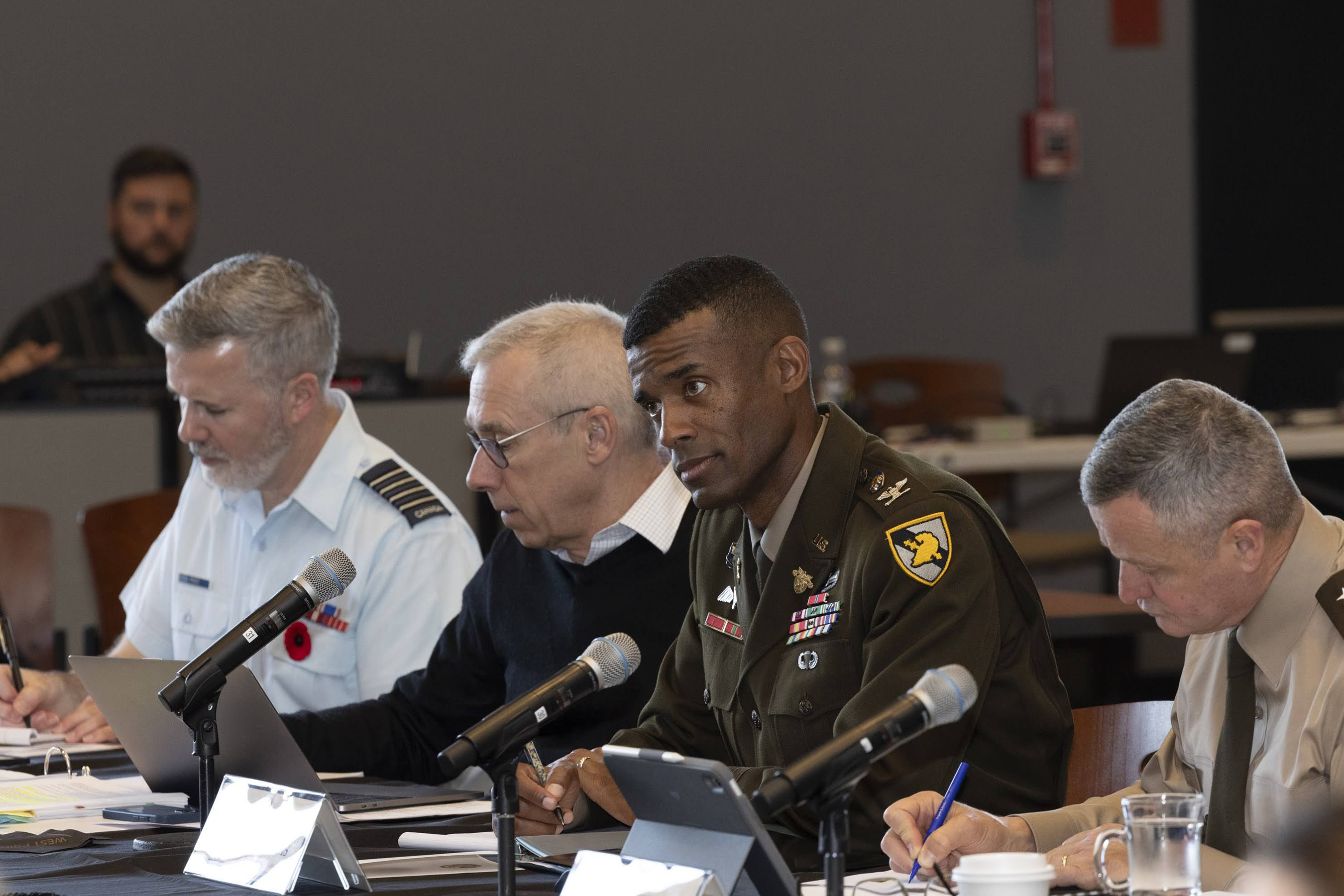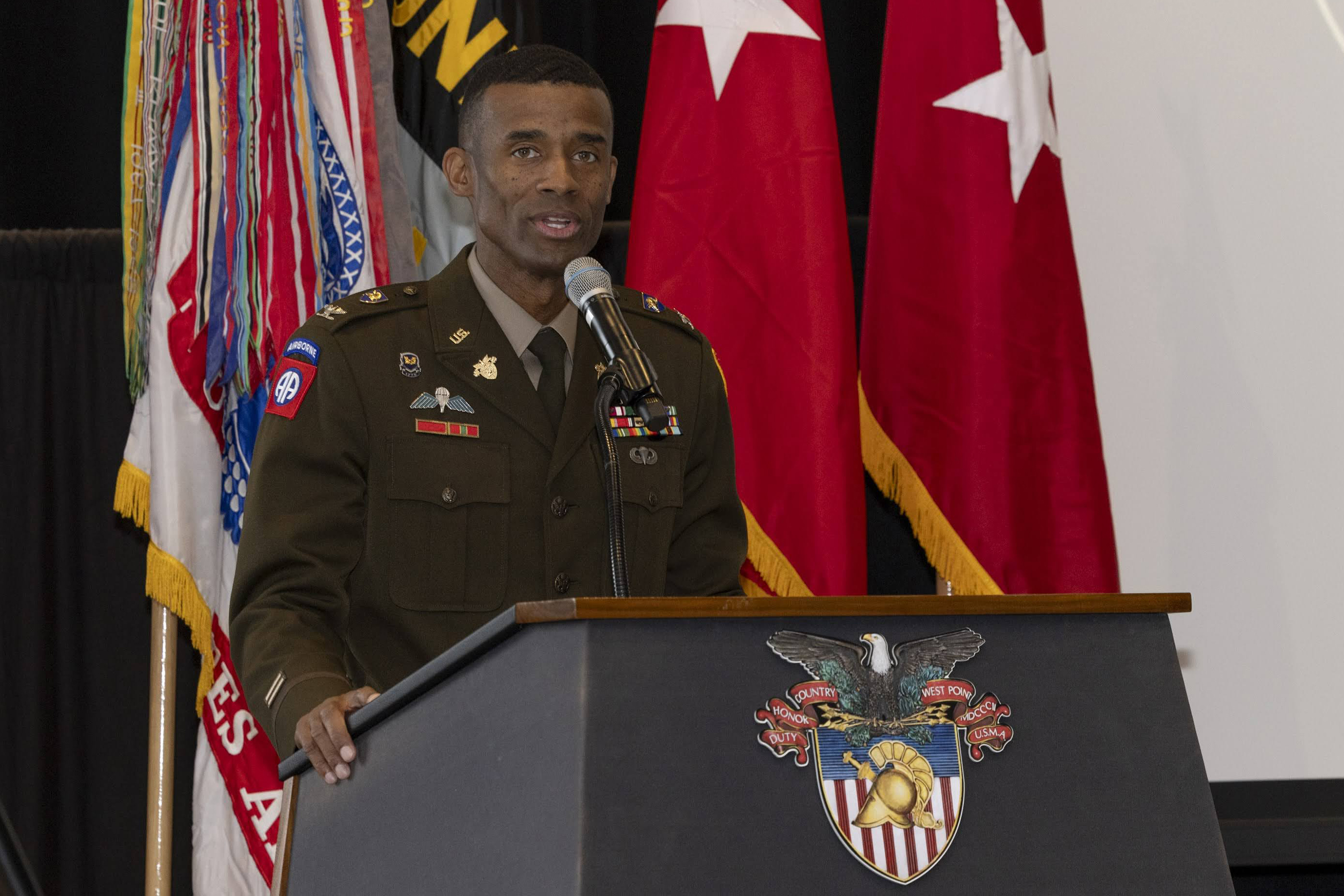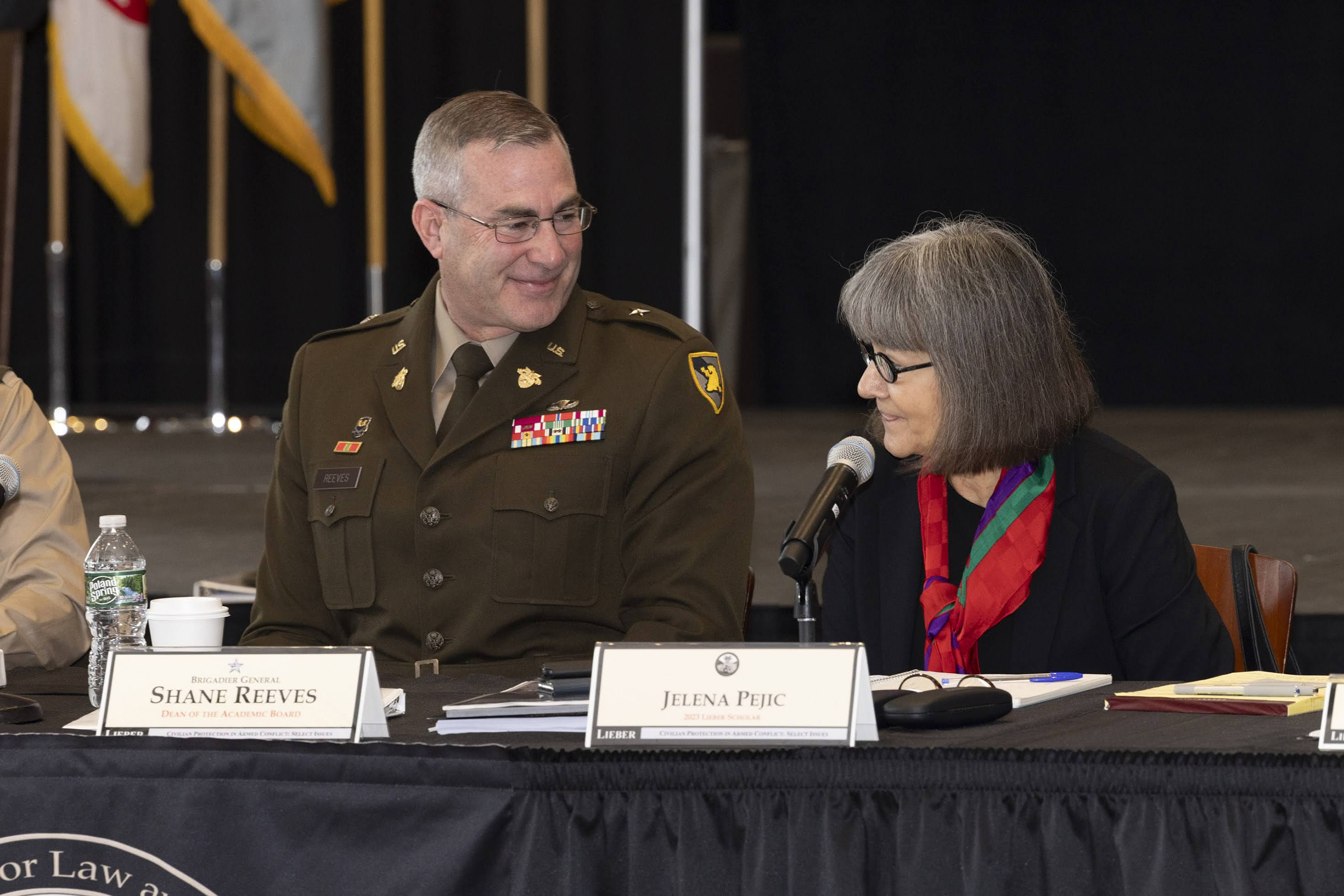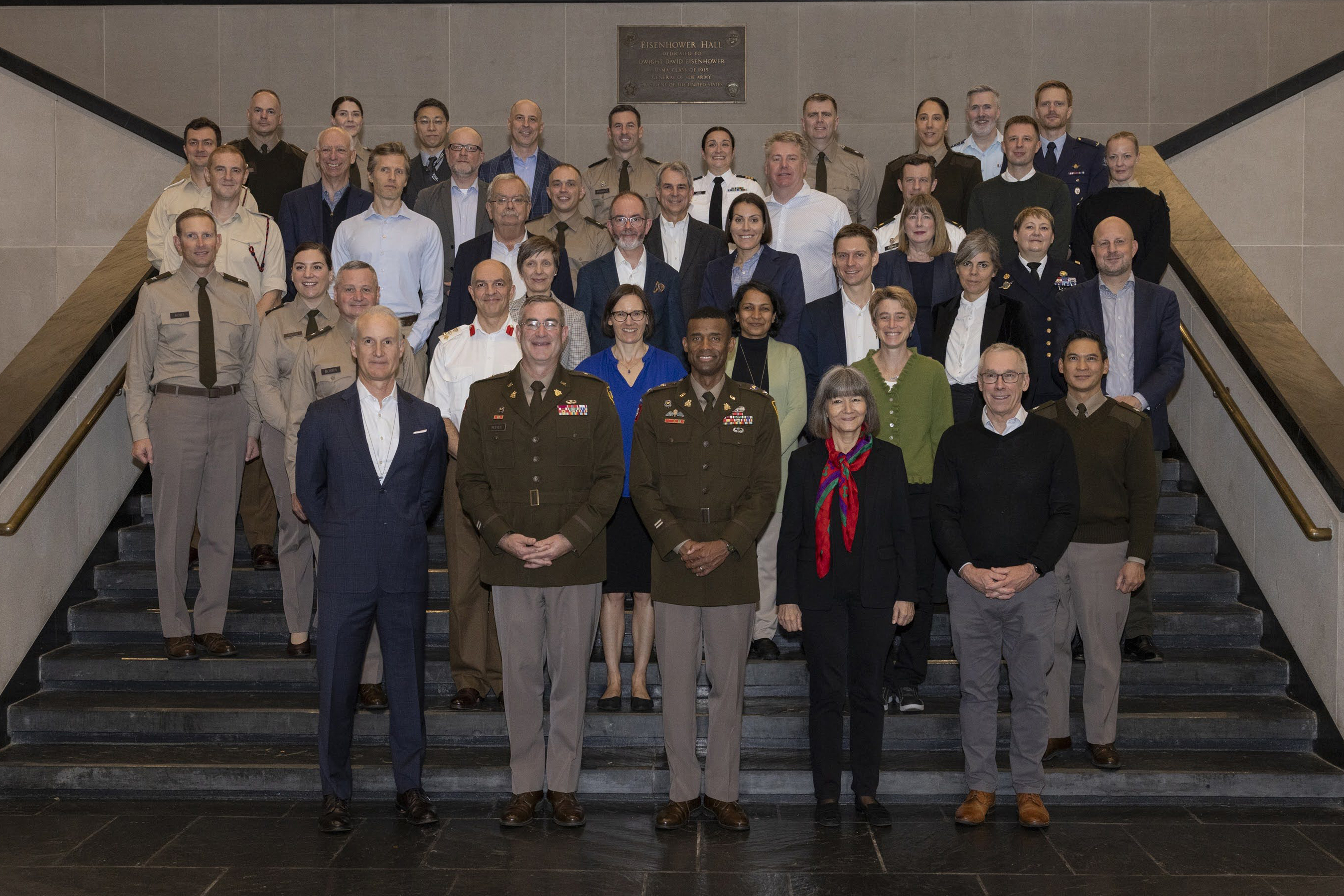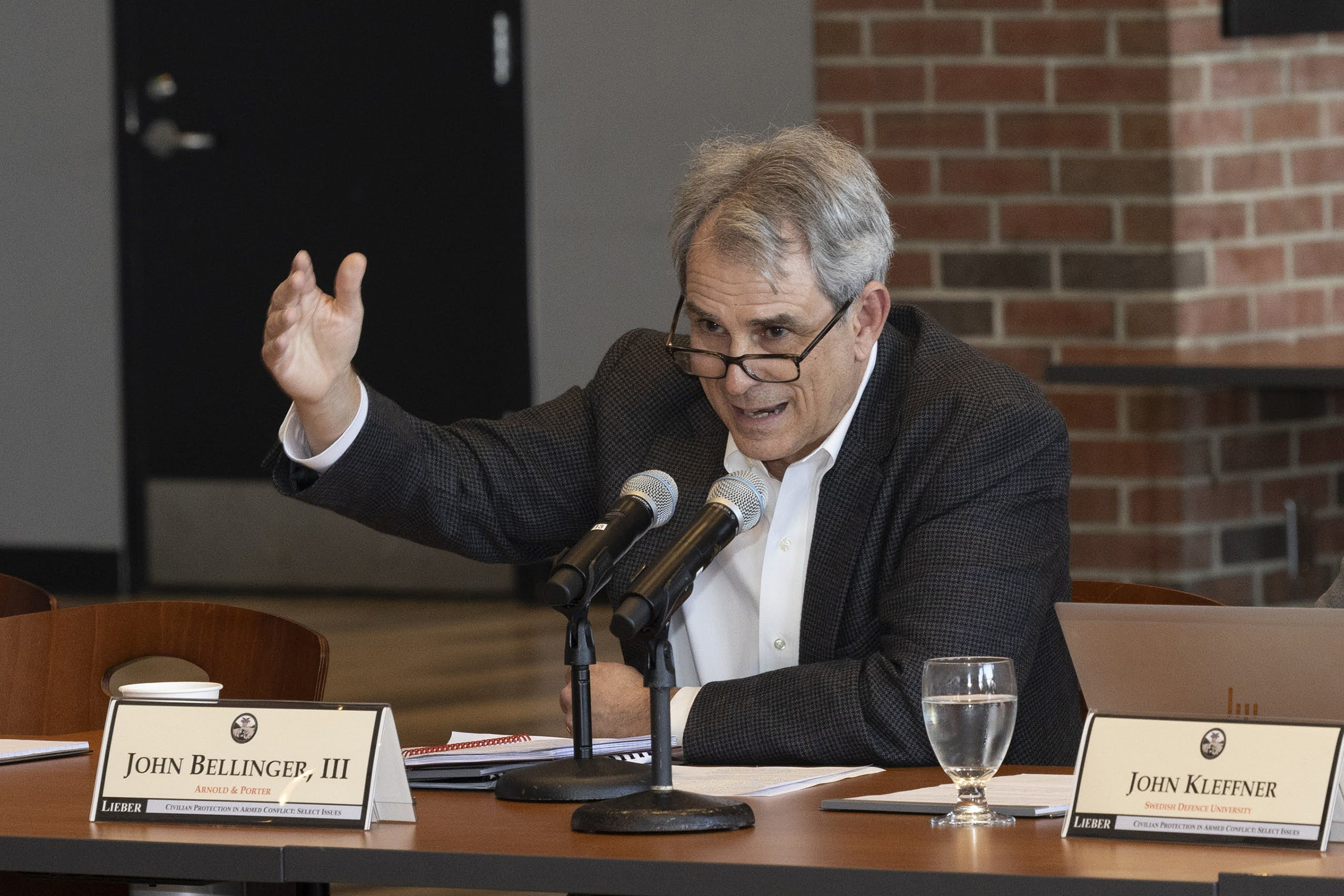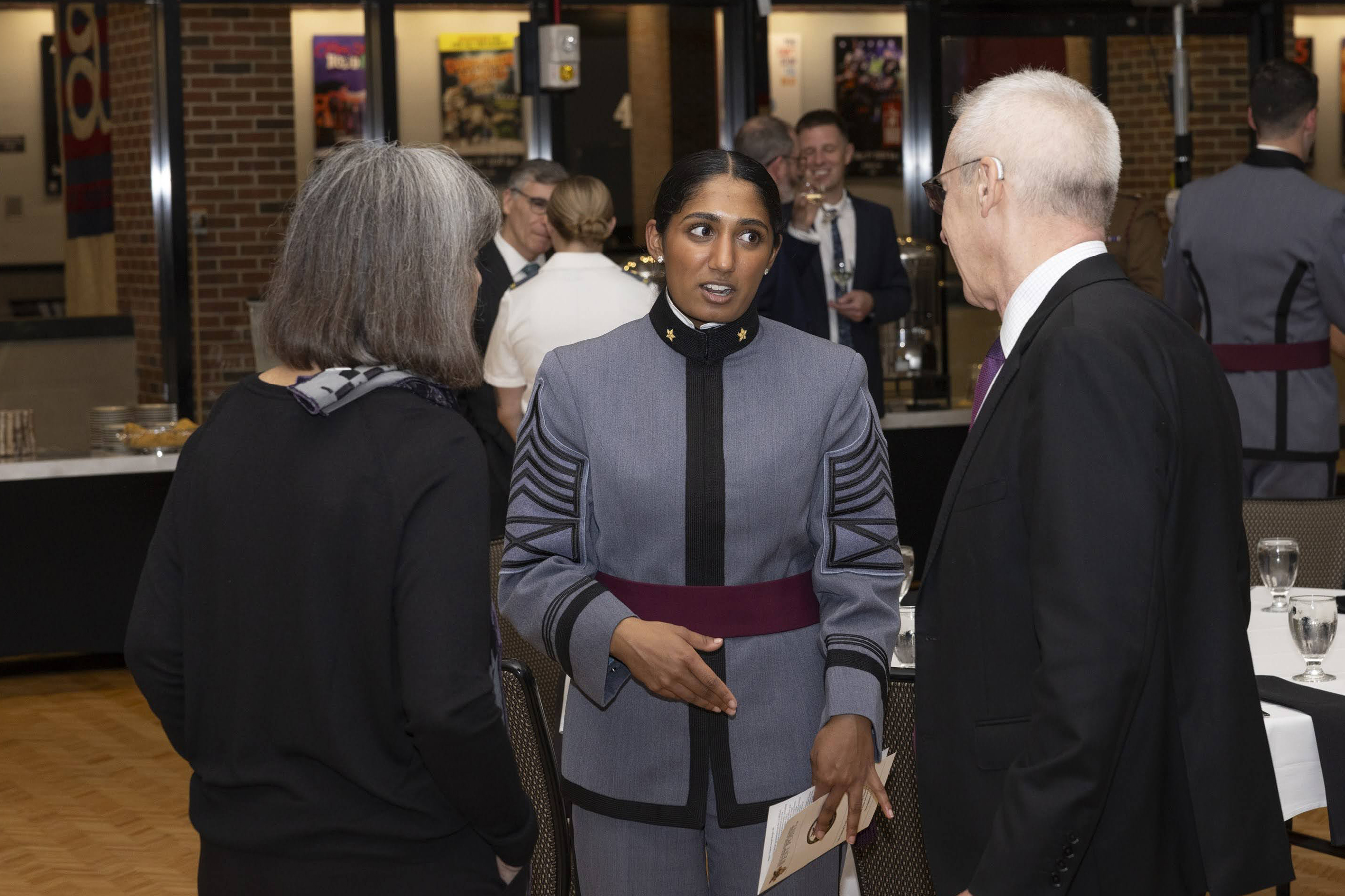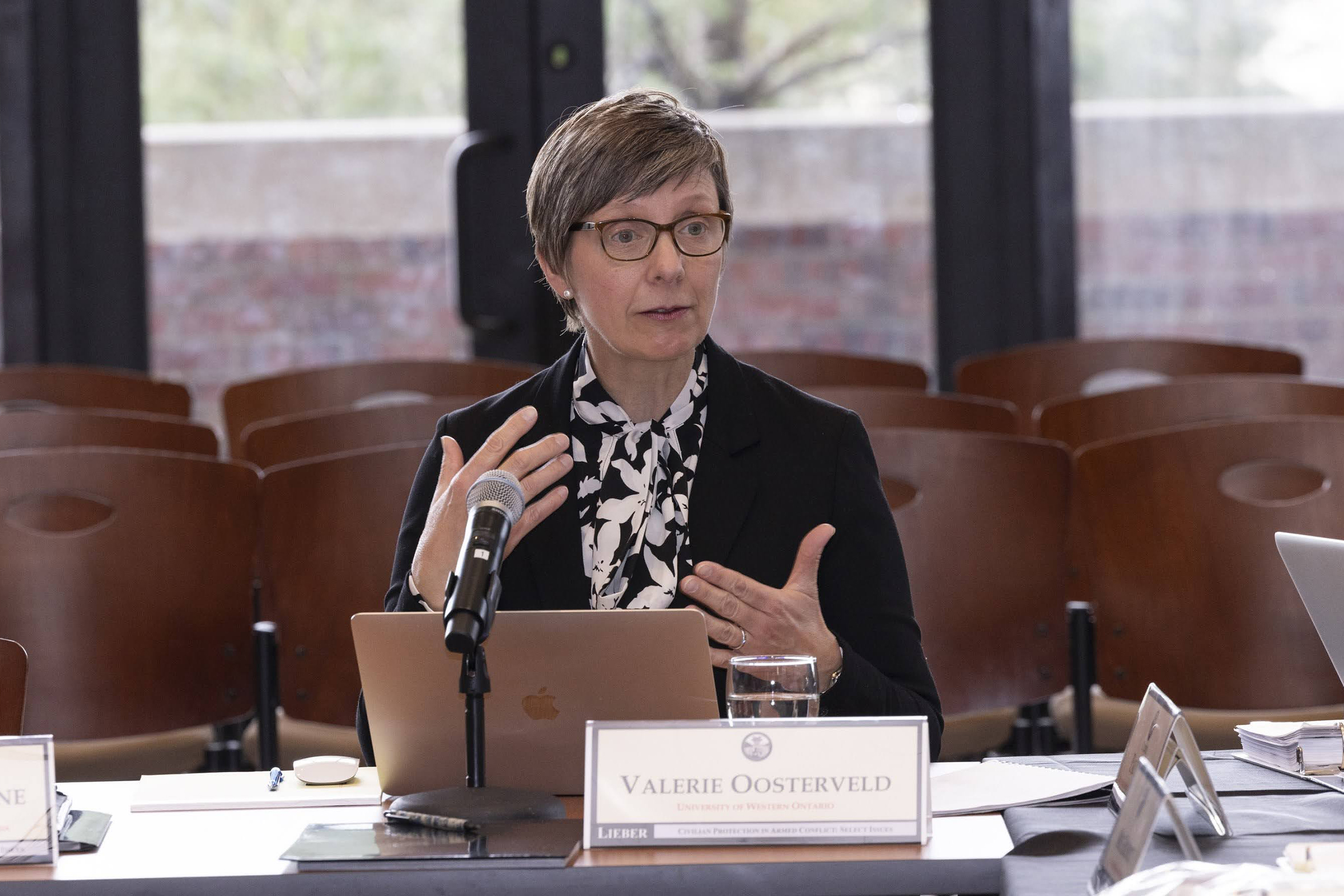Exploring new methodologies in military law regulation entails navigating a terrain of challenges and responsibilities.
As a result, academic and military proficiency is leveraged at the Lieber Institute for Law & Warfare at West Point to invoke discussions and share perspectives to ensure that expressed principles of law "remain definitive, understood, and accepted."
Recently, the Department of Law hosted the annual 2023 Lieber Workshop, an event that brought together cadets, faculty, and special guests in a collective exploration of the theme, "Protecting Civilians in Armed Conflict," on Nov. 7-9, 2023, at the U.S. Military Academy.
In 1863, during the peak of the American Civil War, the Union Army issued a directive known as General Orders No. 100, titled "Instructions for the Government of Armies of the United States in the Field."
Commonly referred to as the "Lieber Code," named after its main drafter, Francis Lieber, this code addressed many wartime concerns. Ranging from protecting civilians to ensuring the humane treatment of prisoners irrespective of race, the code navigated the intricate balance of addressing military needs while implementing acceptable methods and practices of warfare.
Shortly after, West Point added the Lieber Code's guidelines to its curriculum.
Capt. Margaret Kotlik, an assistant professor at the Department of Law and Legal Studies and a 2023 Military Fellow for the Lieber Institute for Law and Warfare, helped facilitate and plan the event and served as one of the panel moderators.
"The idea behind (the event) is that every year, we create a Lieber studies volume, or textbook, that is comprised of authors contributing chapters on their area of expertise that needs generative scholarship," Kotlik said. "So, this year, we focused on protecting civilians in armed conflict."
Authors will research uncharted topics and contribute their findings to the volume. For example, Dr. Leah West and Dr. Russell Buchan wrote a chapter on protecting civilian data from hackers in cyberspace.
"There was not a lot of scholarship on that subject in the literature," Kotlik said. "So, they write these chapters, they submit them to myself and the Lieber scholar, who was Ms. Jelena Pejic this year, who is a former International Committee of the Red Cross senior legal adviser."
After submitting their respective chapters, the facilitators assemble the panelists to discuss the content they authored.
"This year all of the panels are moderated by West Point affiliated personnel," Kotlik said.
Cyberspace is a vast domain of warfare that is still relatively new, which is why Kotlik found discussions about cyber and its connection to military and civilian data remarkably informative.
"We are still coming up with definitions in the law for how we think about the cyber domain and how we apply our land warfare to that. So, learning about the obligation of states not to commingle civilian and military data was really eye opening for me," she said. "We also have an obligation not to commingle ourselves with civilian objects because we are military objects."
In legal terms, during a military conflict, civilian objects known as towns, cities, villages, houses, places of worship, etc., are protected, and only military objects, such as tanks, weapons or communication devices, should be the target for an attack.
"We must make ourselves distinct from the civilians. If we have our military data, which is a lawful military target, commingled with civilian data, that makes that civilian data targetable," Kotlik said. "Protecting civilian data is an obligation that's both affirmative and defensive. We have to make sure that we are neither targeting civilian data nor commingling civilian data with military data."
Correspondingly, the panelists also discussed the Fourth Geneva Convention, one of the primary legal mechanisms aimed directly at protecting civilians.
"One way that we protect civilians is not only their lives, but also their livelihood," Kotlik said. "And in the 21st century, their livelihood is closely tied to data."
Cadets taking a course in Constitutional Military Law were studying the law of armed conflict under Kotlik's tutelage.
"What I wanted (cadets) to take away from that experience is that these are contentious topics, and their application is very nuanced," Kotlik said. "And so, even if commanders do not understand how the Geneva Convention (instructs us) to give prisoners of war very specific treatment, they at least understand the principle of humanity, that we need to treat people well.
"So, the lawyers responsible for knowing the very granular details of the laws of armed conflict will apprise commanders of the general operating principles that guide us, like humanity, like military necessity," she added. "So for my cadets, I hope they took from the workshop how those principles play into the more granular law."
Learning and contextualizing the nuances of military law comes with developing a considerable knowledge base on war crime, which begs the question: what happens when one does not comply with the laws of war?
One of the most important lessons that Kotlik teaches cadets is the difference between a service member fighting to defend one's nation and one who uses the landscape of war to break laws.
"One of my favorite (topics) to talk about is, 'what do we call it when you neutralize someone, not on the battlefield?' That's murder," Kotlik explained. "When you commit violence outside of the parameters of the laws of war, that's a crime.
"We have an entire lesson (based on war crime) that coincides with the Lieber Workshop," she added. "We have examples throughout history of when people have committed violence, not within the parameters of the laws of war."
One example is the My Lai massacre that occurred during the Vietnam War in March 1968.
A company of American Soldiers committed acts of violence, resulting in the deaths of over 500 civilian men, women and children.
The ex-Army officer, 1st Lt. William Calley was court-martialed. However, he made a contentious statement often used to vindicate a Soldier of his or her transgression, which was "I was only following orders."
" ... What I think is crucial to drive home is that ignorance is not an excuse," Kotlik said. "You can't just say I was only following orders, you have an affirmative obligation as an officer to only follow orders that are lawful, and therefore, you have to know what the law is. You need to have the ability to speak truth to power and disobey unlawful orders."
Kotlik noted that this historical account is one of the primary reasons why all Army personnel, whether an enlisted Soldier or officer, should do their due diligence in staying up-to-date in military law and apply it whenever possible during critical military operations.
She added that any cadets or enlisted Soldiers who want to explore a career path in law should find a practice that suits them and fully commit to being competent in whatever field of law they wish to pursue.
"If you have a passion for doing what's right, then the law is the right field for you. Becoming proficient in law is more about pursuing the truth and defending it than receiving accolades," Kotlik said. "Discipline, for me, plays into it in the sense that you have to have the courage to speak truth to power.
"I try to tell cadets who are thinking about becoming judge advocates, whether they're majoring in law in Legal Studies, or whether they are thinking about doing it after their military career; we need everybody in this fight," She concluded. "It doesn't matter if you're super academically gifted, it doesn't matter if you're a physically gifted or not, it takes everybody, you just need to have the ethical compass."
